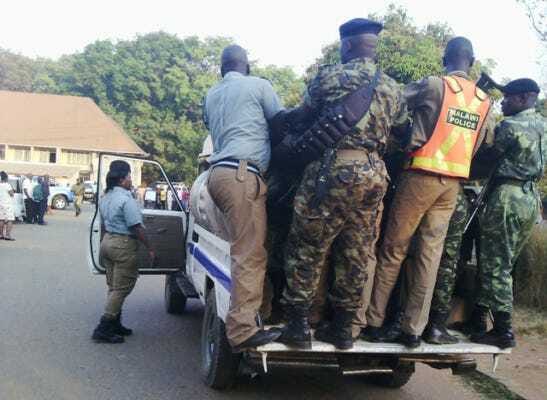
There seems to be occasional confusion on the understanding of the public order provision of the Police Act.
Here is a pedestrian understanding of the provision of the law that might shed light on event organisers, the police, and local government authorities.
Such an understanding could reduce, if not eliminate all the misunderstandings that come out of the execution of public events.
In the first place, the provision addresses three personalities; the Convener, the District Commissioner, and the Officer In Charge of Police.
These are the three key actors in the implementation of the public order provision of the Police Act. Where there is no agreement it gives the opportunity to the convener to appeal to the High Court.
The Convener is the organizer or coordinator of a public event. She/He has the responsibility for the orderly organisation of an event or demonstration.
Ensuring that participants to the event are not disorderly by appointing crowd marshalls that keep the crowd orderly. These marshalls must be dressed conspicuously.
The Convener also ascertains that no participant is carrying any offensive weapon nor a placard that has a provocative message.
An offensive weapon could be a stone, knife, panga, gun, or tree branch, anything that can be used to injure another person or property.
The convener is also responsible for any damages the crowd may cause.
The Convener is responsible for informing the District Commissioner of the intention to organize an event giving the notice a specified period.
A copy of the notice is also given to the Officer In Charge of a Police Station in that geographical jurisdiction.
The District Commissioner is the village Headman, responsible for the general administration and social order of the area.
The Officer in Charge of Police is responsible for safety, security, and public order issues in the area.
If the Officer in Charge of the Police has any issues or concerns affecting the proposed event, he would inform the DC of this. The DC would then convene a meeting between the Convener, the OiC, and her/himself.
The issues would be discussed, any changes agreed upon; whether it is to change the date, time, route, or venue of the event or even cancellation would be agreed upon. Similarly, a meeting would be called if the DC had any concerns.
The decision of this tripartite meeting must be given to the convener in writing.
In the case where the Convener would not agree with the decision of this tripartite meeting, the Convener would appeal to the High Court of Malawi.
Where there are no problems for the event or demonstration to take place, the OiC would coordinate with the Convener on the orderly conducting of the event such that minimum disturbance is done to the normal functions of the village.
There would discuss how people would gather and disperse, the estimated number of participants, in case of a demonstration that involves movement, the route that would be followed, and determine and agree on the number of crowd marshalls the convener must-have.
The notice must be taken that the primary responsibility of order for the event is that of the convener and not the police. The police role is secondary.
The provision envisages democratic social intercourse, where peoples' rights are respected, public safety, security, and peace maintained. It abhors disorderly behaviour, safeguards against injury to persons or property.
The provision envisages adherence to the rule of law. No abrupt nor arbitrary action from any of the key players.
The law does not empower any other governmental authority on the management of public order events other than the Officer in Charge of a Police Station, the District Commissioner of the area, and in case of need to resolve a dispute, the High Court.
It will thus be noted that many times confusion in the management of public order in Malawi is when other governmental authorities other than the one mentioned in the law, intervene that confusion comes.
Sometimes event organisers add to the confusion by giving notice or copies of the notice to inappropriate governmental authorities.
Thoughts of a pedestrian that is often disturbed or disrupted by disorganization of public events and demonstrations.